By Mindful Muslim Reader

“Read, in the name of your Lord, Who created: Created man of clotted blood. Read, for your Lord is Most Generous. The One Who taught the use of the pen. Taught man what he did not know.”
–Quran 96:1-5
The final revelation from God to humanity begins its transmission with the injunction to read.
But to an unlettered messenger in an illiterate society, it was a command to recite, to recite aloud the words of the Creator ﷻ to His creation—an act that spread light from a handful of people tucked away in a small desert town to every nation on Earth.
This spread of divine knowledge happened through both the written word and the oral tradition. As the inheritors of this sacred trust, we must keep alive both traditions by teaching our children to read and also inculcating in them the love of spoken language.
Starting in the womb, a fetus can distinguish the voice of his mother. When the child is born, he responds to that voice above all others.
The mother’s seemingly mundane act of speaking brings forth his nobility by bestowing the gift of language. The gift that honors and elevates the child above all other creatures. The gift that elevated our father Adam, peace be upon him, above the angels in heaven.
“There are only two efficient ways to get words into the brain: either through the eye or through the ear.”
Jim Trelease
When a mother continues the oral tradition by reading aloud to her child, the child responds by orienting himself towards her and the ideas she is transmitting.
In the West, we may have lost our ability to tell stories as a way of passing down knowledge and wisdom through generations. But every parent or teacher who can read can build on the oral tradition by reading aloud to their children.
Building Literacy
As Jim Trelease, a decades-long proponent of reading aloud to children, explains, “There are only two efficient ways to get words into the brain: either through the eye or through the ear.” He makes the case that we must take advantage of the formative years of a child’s life when language centers in the brain are being built. During this time, the only possible way to transmit language is through the ear.
By reading aloud books, we allow the ear to become the vessel to nourishing the heart. When we choose books that build moral literacy and cultivate an appreciation for beauty, we are quenching the soul’s thirst for stories that speak to our essential human nature.
“Children are made readers on the laps of their parents.”
Emilie Buchwald
Reading aloud to children allows them to associate reading with pleasure and with closeness and love from the adult. It gives them rich vocabulary they don’t hear in everyday speech. It allows them to understand the great stories they aren’t ready to read themselves. Reading aloud is the single most important indicator – above class, socio-economic status, or race – of whether a child will become a lifelong reader.
Reading aloud allows the child to build curiosity through a shared experience with an elder, to wonder aloud what the character might do next. More importantly, it allows the adult to ask questions of the child, to ask what a character should do next. This is essential in building the moral imagination. As the poet and teacher Emilie Buchwald posits, “Children are made readers on the laps of their parents.”
“Listen with the ears of tolerance. See through the eyes of compassion. Speak with the language of love.”
Rumi
Creating Context
Adults can contextualize stories that may otherwise get canceled in our modern culture of childhood fragility. While a 5-year-old girl can delight in the intimate details of Laura Ingalls Wilder’s life on the prairie, she won’t be able to comprehend some of the hateful language. An adult reading the book aloud can skip those passages for a 5-year-old, or pause to discuss the context with a 7-year-old, or contrast differing points of view with a 9-year-old.
A great opportunity is afforded the adult to give a child context. She can learn to see meaning in the shades of gray between the black words on the white page. A child can learn wisdom by understanding a different perspective based on another’s lived experience. To ultimately take what is good and leave what is wrong.
Rumi, the 13th-century master of the Islamic sciences and knower of hearts, urged us to: “Listen with the ears of tolerance. See through the eyes of compassion. Speak with the language of love.”
We accomplish all three in the singular act of reading aloud to our children.
If we make the effort to read aloud books carefully chosen for their elevating language, ennobling virtue, imaginative story, and transformative beauty, we carry on the best of our tradition: our Lord’s ﷻ command of ‘iqra – to read and to recite!

